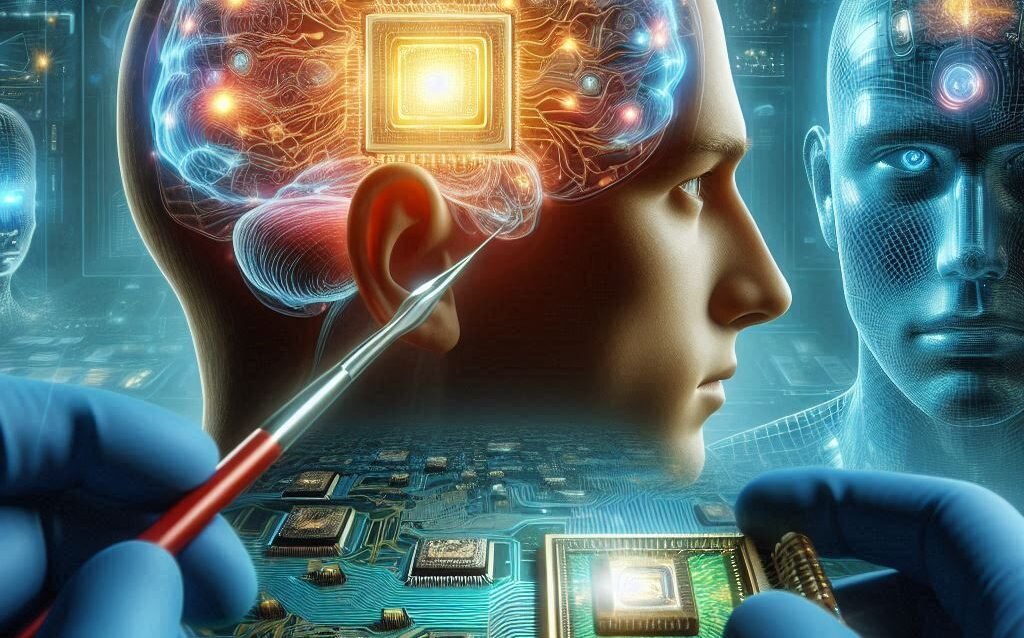Neurotechnology represents a multidisciplinary field that integrates neuroscience, engineering, and computing to explore the central nervous system and its functions. It encompasses a broad range of tools and practices aimed at understanding brain mechanisms and enhancing human capabilities. Recently, advancements in neurotechnology have ushered in a new era of possibilities in both scientific research and medical applications, highlighting its significant role in reshaping our understanding of the brain.
At its core, neurotechnology involves the development of devices and methods to monitor, manipulate, and communicate with neural systems. This field has gained prominence due to its potential to address a variety of neurological disorders, such as epilepsy, Parkinson’s disease, and depression. By utilizing brain-machine interfaces and other neurotechnological innovations, scientists can create novel therapeutic approaches that not only alleviate symptoms but also empower patients to take control of their conditions.
Moreover, neurotechnology holds immense promise in cognitive enhancement, paving the way for new methods to boost memory, focus, and overall cognitive functioning. As the integration of smart chips becomes more prevalent, the implications for education, productivity, and even entertainment will be profound. The intersection of neurotechnology with artificial intelligence further enhances its capabilities, leading to advanced neuroprosthetics that can decode brain activity with unprecedented accuracy.
In summary, neurotechnology is revolutionizing brain research and therapy, marking a pivotal moment in medicine and enhancing human capabilities. The development of smart brain chips epitomizes the potential of this field, laying the foundation for future innovations that may transform both individual lives and societal paradigms. As we explore the advances in neurotechnology, it becomes increasingly clear that these advancements could forever change our approach to understanding the human brain.
(Purchase today by clicking on the image)
The Development of Science Corp’s Smart Chip
Science Corp’s journey in developing the Smart Brain Chip represents a significant leap in the field of neurotechnology. This innovative device, designed to interface directly with the human brain, promises to enhance cognitive functions and provide unprecedented insights into neural activities. At the heart of the chip’s development lies advanced neuroengineering techniques, employing cutting-edge materials and miniaturized components to achieve seamless integration with brain tissue. The focus has been on creating a device that not only monitors but also interprets complex brain signals, which is pivotal for subsequent therapeutic applications.
The intended functionalities of the Smart Brain Chip are multifaceted. Primarily, it aims to assist individuals with neurological disorders by providing real-time data regarding their neural states, potentially allowing for tailored interventions. Furthermore, the chip has applications in cognitive enhancement for healthy individuals, offering real-time feedback that could enhance learning and memory retention. The versatility of this device lies in its ability to adapt to various parameters, thus serving both therapeutic and enhancement purposes in diverse clinical settings.
Development involved a rigorous process from the initial concept to the prototyping stage. The collaboration between neuroscientists, engineers, and software developers was instrumental in overcoming technical challenges. This interdisciplinary approach facilitated the blending of principles from neuroscience, computer science, and electrical engineering, ensuring the chip’s design addressed both technical feasibility and biological compatibility. Extensive testing in controlled environments validated its safety and efficacy before proceeding to more complex trials. As universities and research institutions partnered with Science Corp, knowledge sharing and resource pooling accelerated the innovation process, marking a promising era for neurotechnology.
Ethical Considerations and Risks
The advent of neurotechnology, particularly with innovations such as Science Corp’s smart brain chip, brings forth a multitude of ethical considerations. As these advanced devices promise enhancements to cognitive abilities and mental health, they simultaneously raise significant concerns regarding individual privacy. When a chip is integrated into the brain, it is capable of collecting and processing substantial amounts of personal and sensitive data. This availability of intimate information presents a risk not only to personal privacy but also to informed consent, as users may lack a comprehensive understanding of how their data is utilized and protected.
Moreover, the topic of consent is crucial. The intricate nature of brain-computer interfaces necessitates an understanding far beyond typical technological acceptance. Individuals must be fully aware of the implications of their choice, including potential pressure to adopt such technology for societal or economic reasons. This situation highlights the importance of establishing robust ethical standards and rigorous regulatory frameworks before widespread adoption. Such measures are essential for safeguarding user rights and ensuring that individuals are not coerced or manipulated into implantation.
Additionally, the long-term effects of smart brain chips raise pertinent questions regarding mental health and identity. While potential therapeutic benefits exist, there is a risk that these devices could alter not only cognitive functions but also one’s sense of self. Concerns about dependency on technology for mental clarity or emotional regulation may arise, possibly leading to diminished personal agency. This raises essential inquiries about how such technology may redefine our understanding of individuality and autonomy.
In light of these considerations, it is critical for regulatory bodies to provide oversight and guidance in the development and application of neurotechnologies. Establishing ethical standards can help balance innovation with the safeguarding of fundamental human rights.
Future Prospects of Brain-Computer Interfaces
As we stand on the brink of a new era in neurotechnology, the future of brain-computer interfaces (BCIs) is poised for significant transformation, especially with the advent of Science Corp’s innovative smart brain chip. This cutting-edge technology holds the potential to fundamentally change the way humans interact with machines and, indeed, with each other. Enhanced cognitive capabilities could become a reality, paving the way for individuals to augment their mental functions—enabling improved memory retention, faster information processing, and perhaps even expansion of creative thought through direct interaction with artificial intelligence.
Moreover, the implications for treating neurological disorders are profound. BCIs have already shown promise in helping individuals with conditions such as epilepsy, Parkinson’s disease, and spinal cord injuries. The evolution of Science Corp’s smart chip could lead to more targeted therapies, offering real-time monitoring and intervention capabilities that adjust to a patient’s specific needs. As these devices become more sophisticated, the possibility of restoring lost functions or even eliminating symptoms altogether may not be far-fetched. This advancement could vastly improve the quality of life for millions worldwide.
Integrating artificial intelligence with human cognition presents another frontier for exploration. By creating seamless communication between the brain and AI systems, we can envision a time when decision-making processes become more efficient and informed, perhaps altering the very fabric of personal and professional interactions. However, this integration also raises important ethical considerations. Society will need to grapple with questions regarding privacy, autonomy, and the implications of enhanced human abilities versus potential inequalities.
As we contemplate these promising developments in brain-computer interfaces, it becomes crucial to carefully navigate the challenges and opportunities they present. The road ahead is filled with possibilities that may redefine what it means to be human in the age of intelligent technology.





